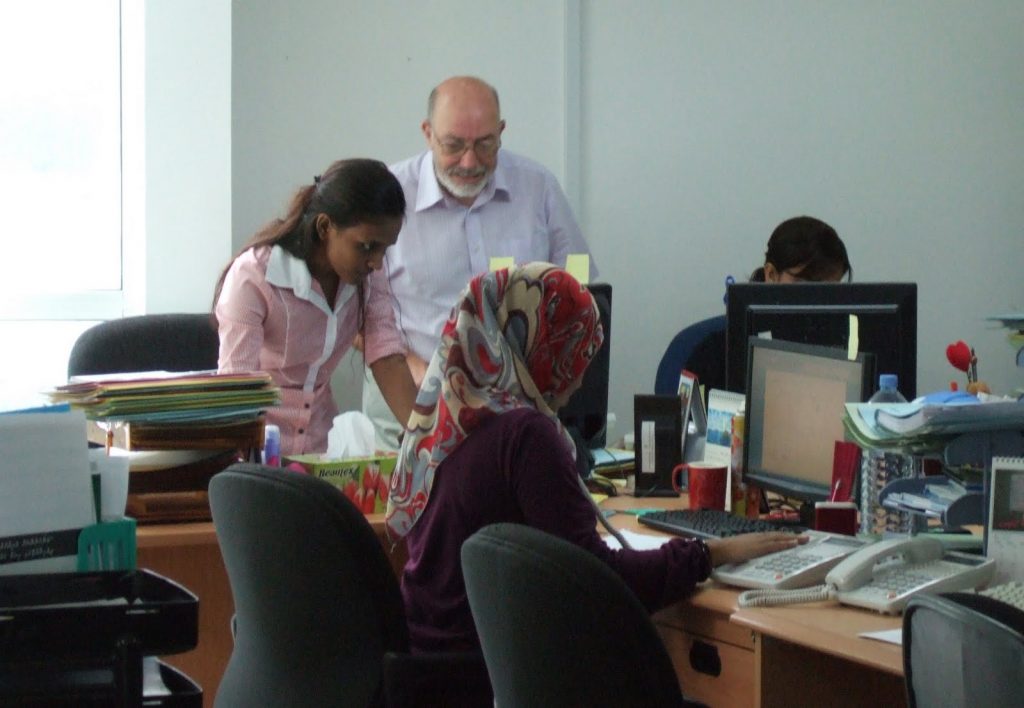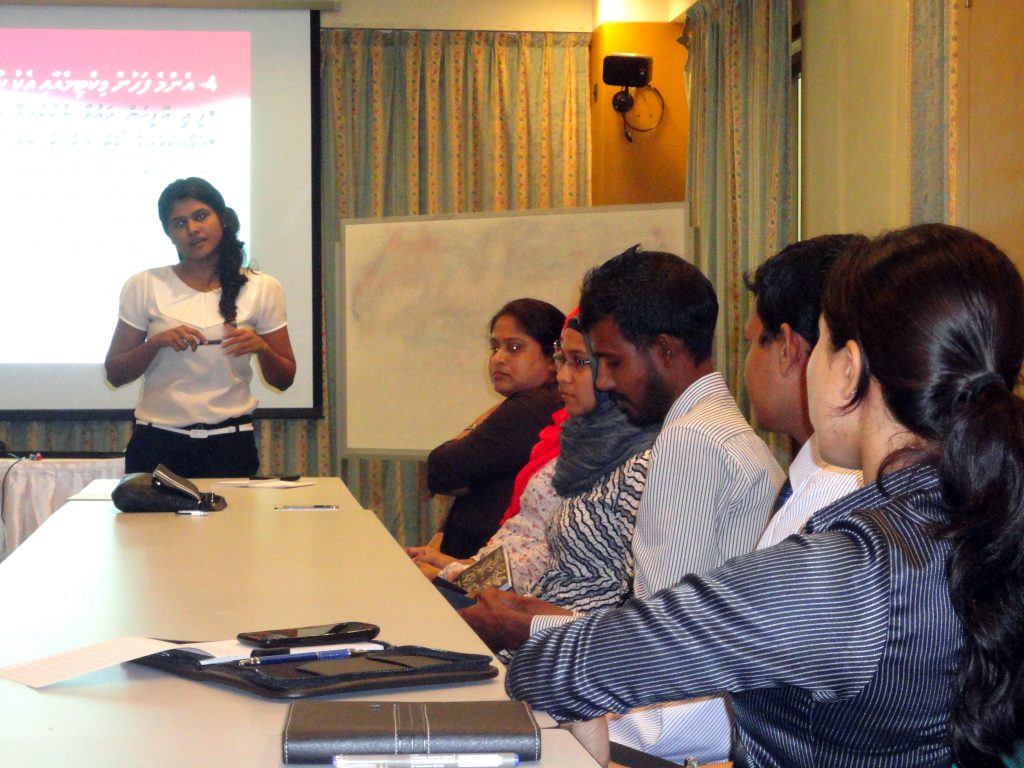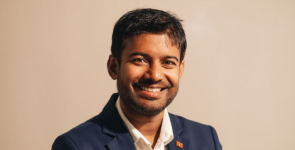By Guest Writer: Ahmed Riza
Most of us sort of accept that saving money just isn’t our cup of tea. If you don’t earn much and can barely pay your bills, the idea of saving money might seem far-fetched. When you only have MVR100 in your pocket left at the end of the month, why even bother to try and save? Well, the reason is you have to start somewhere! If you work at it, plan it well, your financial situation can be improved over time. Savings does not happen overnight though. If you think so, then you are seriously mistaken! Saving money is worth the effort. It gives you peace of mind, it gives you options, and the more you save, the easier it becomes to accumulate additional savings.
Not a day passes without worrying about money! How to pay the next month’s rent, how to fund the children’s tuition, pay the utility bills and the loan repayment and so on. In contrast, savings brings peace of mind if you start to save continuously and those regular payments to yourself become something you do without any hesitation. You know that you have savings that can save a couple of months’ recurrent expenses. Later in life, the money thoughts that keep you up at night might center around paying for your kids to go to college or having enough money to retire.

As you accumulate savings, your financial worries will diminish, as long as you’re living within your means. If you already have next month’s rent taken care of by the first week of the current month, if you know you can get by without work for three to six months, if you have savings accounts for your children’s education and your own retirement that you’re regularly funding, you’ll sleep better at night. The reduced stress from having money in the bank frees up your energy for more enjoyable thoughts and activities. Finding the best invesment is key to making sure that the money that you do put away earns you the highest return.
The more money you have saved, the more you control your own destiny. If your job has you on the verge of a nervous breakdown, you can quit, even if you don’t have a new job lined up yet, and take time off to restore your sanity before you look for new employment. If you’re tired of living in a congested apartment, you can move to a better place because you’ll have enough for a deposit on a better apartment or a down payment on a nicer home.
If you get sick and need expensive healthcare that your insurance doesn’t cover, you’ll have a way to pay for it even though you can’t work while you’re getting treatment. And knowing that you have options because of the money you’ve socked away can give you, even more peace of mind.
No, money doesn’t solve every problem. If you are laid off, it might take as long as six months to a year to find a new job and it depends on the industry and the level you are looking for. Some illnesses won’t go away no matter how many procedures you can afford, and random crime can happen even in a supposedly secure community. But with more money in the bank to deal with issues like these, you give yourself better odds of coming out on top.

Most of us put in hundreds of hours of work each year to earn most of our money. But when you have savings and stash your funds in the right places, your money starts to work for you. Over time, you’ll need to work less and less as your money works more and more, and eventually, you might be able to stop working altogether. For instance, investing in real estate or starting up a small business could be a possible option. What does it mean to have your money working for you? When you’re first starting to save, you’ll want to put your money somewhere safe, where you can access it right away for unforeseen expenses. That means a savings account, where you might earn 1.5% return annually and not even keep up with inflation, which tends to run around 1% to 3% per year. But something is always better than nothing!
Maldivians aren’t usually in the habit of saving as they live from paycheck to paycheck, a norm for many of us. Then COVID-19 happened. It took the entire world by storm. It has made us realize that having savings could save us for a longer period of time, without having to borrow from someone else, even though we are unemployed for a while.
Warren Buffett, one of the richest men in the world currently, once said, “Do not save what is left after spending; instead spend what is left after saving.” That makes great sense because irrespective of how much money you make you do not have the peace of mind or you are still stressing on how to pay the next month’s living expenses. The formula we are using currently for living in relation to money needs to be amended immediately. Currently, we spend everything we get and nothing is saved, not because we don’t get enough money, but because we don’t give much importance to saving. This trend is common amongst people of 18-35 years. In fact, changing the formula to income minus savings will make a habit of saving for the future in a continuous manner and could save a lot of lives if that is what is needed.
Possibility of savings has affected us more due to the prolong cost of living in our country for the last couple of decades. Taking into consideration the higher cost of living especially housing facilities and high food cost due to the fact that we all depend on imports, people do not have money left for saving at the end of the month. Rather they end up borrowing to fix the necessities at different times. Therefore, it is important to understand the context of spending patterns by Maldivians. Many of us do not know that we are living in a credit economy and it is the reason we have dragged by so much over the years. The purchasing power of 2005 is far better than that of 2020. That MVR5,000 we got in 2005 was more than enough for us to spend on our daily needs together with sending a share to parents after saving. However, even getting five times more today makes no sense to any of us because at the end you are just like anyone else with an empty hand.

Household debt has risen more than 150% in the Maldives over the years, which means every MVR1 we get we spend MVR1.5 now, and it is worrisome that this will still increase in the future if we happen to spend the same way as before. We have been living in a bittersweet symphony all this time. The question is what made it possible for us to live a life that is not even within our means? Pretty much the answer lies within the credit economy we have created on our own. Let’s look at a random example of someone who lives in the greater Male’ area who gets a monthly salary of MVR10,000. He will be definitely be enjoying an instalment plan for a motorbike and a recent phone that could cost him about MVR4,000 monthly. Therefore his net income, after taking into consideration pension deductions, will be MVR5300 which will be available to other expenses such as food, the share of the rent, utility bills and etc. On top of it, there will be regular coffee breaks, dining at an eatery once in a while and don’t forget a pack of cigarettes! What’s brilliant and sweet about us is, we still manage to do it within the month. However, the bitter side is we are mostly in debt to a financial institution or to someone at all times.
One of the best ways of saving money is to keep them in a savings account of a bank. One of the best ways to do this is having a separate savings account where you can transfer savings share for the month immediately after receiving your salary. It is not how much you can save, it is the effort you put in saving something for the future. Nowadays, we have options to have separate accounts which are not linked to debit cards or credit cards so that it is difficult to withdraw from it as easily as from an account linked to the card. Secondly, saving money at home is an option too when you really don’t trust banks. However, this could be a riskier option to choose than the former. Third, but not very common, we keep our money with a trustee other than a bank.
To save we need to earn first! Earnings depend on a lot of attributes such as qualifications, skills and experiences. Level of earnings depends on the industry you work in. There are several ways that we can increase the earnings power without conventional educational qualifications. Working extra could be the first option, for instance, a full-time lecturer could do some part-time lecturing in their free time or conduct private tuitions. Secondly, for a salesperson who works on commission, the more he sells the more he earns, for example, real estate agents. Thirdly, finding out our talents and improving on it to a scale that can create money, for instance, being an artist or a sportsman. Additionally, we need to understand that working 8 hours of corporate work is too mainstream now and that is not our limit and if someone can work for 12 hours a day that is his capacity. If we work our maximum that will ultimately increase our productivity increasing the country’s GDP to another level.

Quick research was conducted randomly recently, especially for this article, regarding the saving culture we have in our society. A total of 131 respondents answered 10 questions. The respondents are between working age group and 55% of them are between 25-34 years old. Nearly 90% of the respondents said they receive a salary less than 30,000 and out of that 52% said they get 15,000 and below. About 70% of the total sample taken, agrees their monthly expenses are less or equivalent to 15,000. However, what’s interesting is, three-fourths of the sample said they save below 5,000 or nothing at all. Out of the total 66% said they have a specific account for savings and 86% of people prefer to keep money in the bank rather than keeping at home or with a trustee which also means people prefer banks due to its conveniences offered.
Majority of people raised concerns that there is a lack of awareness among the public on savings and savings culture. It was almost unanimously agreed that savings are important for us to make a better living in the future. However, the majority of them criticized that there are too few options in the financial market to get an investment return while returns are comparatively low even with the existing options. Surprisingly almost two-third of the respondents disagree that Retirement Pension Scheme is a saving for the future. This also shows a lack of general information regarding pension and savings. However, they all unanimously agreed that they will be saving more in the future due to the lessons learnt through COVID-19.

If you have a high income and low expenses, you might accumulate enough to retire in 10 years. For most people, it takes closer to 40 years. But at some point, if you save and invest regularly, you should be able to live off the income generated by your investments—the saved money that’s working for you. The earlier you start, the more time a small amount of money will be able to grow large through the miracle of the multiplier effect.
Want it or not, it is high time for us to believe that saving is a life-needed requirement to fulfil. It should be at the top of the to-do-list every month. Savings culture should be cultivated from the grassroots onward. Saving money is incredibly important. It gives you peace of mind, expands your options for decisions that have a major effect on your quality of life, and eventually gives you the option to retire. Most people who are wealthy got there through a combination of their own hard work, smart savings and investment decisions. You can become one of those people, too. Therefore, ‘It Is Never Too Late To Start Saving For Tomorrow!’
About the author: Ahmed Riza has 10 years of experience in banking, Accounting and finance, and hospitality industry. He also holds a MSc in Islamic Banking and Finance, and Bachelors of Hospitality and Tourism Management.



















